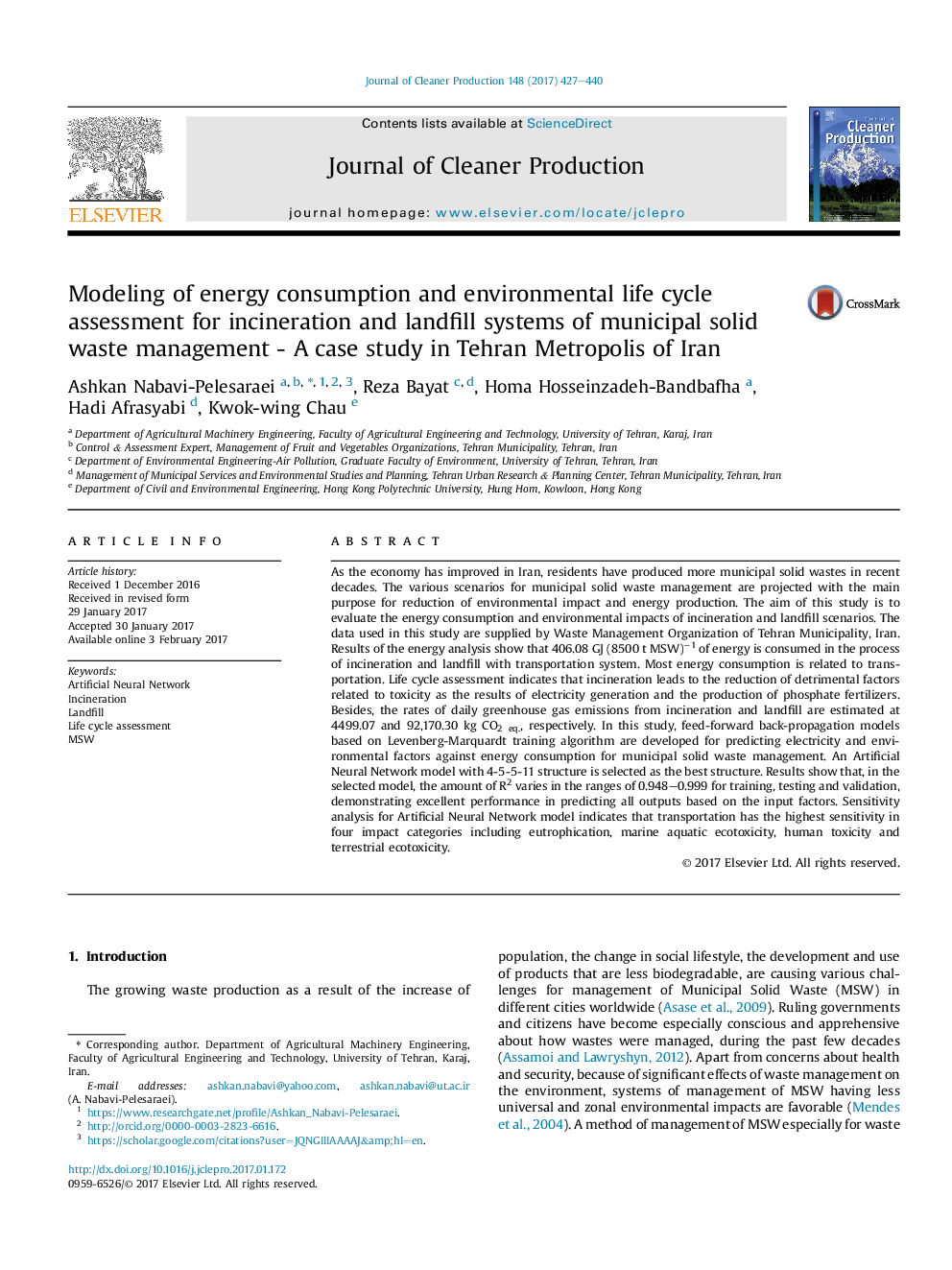| کد مقاله | کد نشریه | سال انتشار | مقاله انگلیسی | نسخه تمام متن |
|---|---|---|---|---|
| 5480207 | 1522105 | 2017 | 14 صفحه PDF | دانلود رایگان |
عنوان انگلیسی مقاله ISI
Modeling of energy consumption and environmental life cycle assessment for incineration and landfill systems of municipal solid waste management - A case study in Tehran Metropolis of Iran
ترجمه فارسی عنوان
مدل سازی مصرف انرژی و بررسی چرخه زندگی زیست محیطی برای سیستم های زباله و دفن زباله های دفع زباله های شهری - مطالعه موردی در کلانشهر تهران
دانلود مقاله + سفارش ترجمه
دانلود مقاله ISI انگلیسی
رایگان برای ایرانیان
کلمات کلیدی
موضوعات مرتبط
مهندسی و علوم پایه
مهندسی انرژی
انرژی های تجدید پذیر، توسعه پایدار و محیط زیست
چکیده انگلیسی
As the economy has improved in Iran, residents have produced more municipal solid wastes in recent decades. The various scenarios for municipal solid waste management are projected with the main purpose for reduction of environmental impact and energy production. The aim of this study is to evaluate the energy consumption and environmental impacts of incineration and landfill scenarios. The data used in this study are supplied by Waste Management Organization of Tehran Municipality, Iran. Results of the energy analysis show that 406.08 GJ (8500 t MSW)â1 of energy is consumed in the process of incineration and landfill with transportation system. Most energy consumption is related to transportation. Life cycle assessment indicates that incineration leads to the reduction of detrimental factors related to toxicity as the results of electricity generation and the production of phosphate fertilizers. Besides, the rates of daily greenhouse gas emissions from incineration and landfill are estimated at 4499.07 and 92,170.30 kg CO2eq., respectively. In this study, feed-forward back-propagation models based on Levenberg-Marquardt training algorithm are developed for predicting electricity and environmental factors against energy consumption for municipal solid waste management. An Artificial Neural Network model with 4-5-5-11 structure is selected as the best structure. Results show that, in the selected model, the amount of R2 varies in the ranges of 0.948-0.999 for training, testing and validation, demonstrating excellent performance in predicting all outputs based on the input factors. Sensitivity analysis for Artificial Neural Network model indicates that transportation has the highest sensitivity in four impact categories including eutrophication, marine aquatic ecotoxicity, human toxicity and terrestrial ecotoxicity.
ناشر
Database: Elsevier - ScienceDirect (ساینس دایرکت)
Journal: Journal of Cleaner Production - Volume 148, 1 April 2017, Pages 427-440
Journal: Journal of Cleaner Production - Volume 148, 1 April 2017, Pages 427-440
نویسندگان
Ashkan Nabavi-Pelesaraei, Reza Bayat, Homa Hosseinzadeh-Bandbafha, Hadi Afrasyabi, Kwok-wing Chau,
